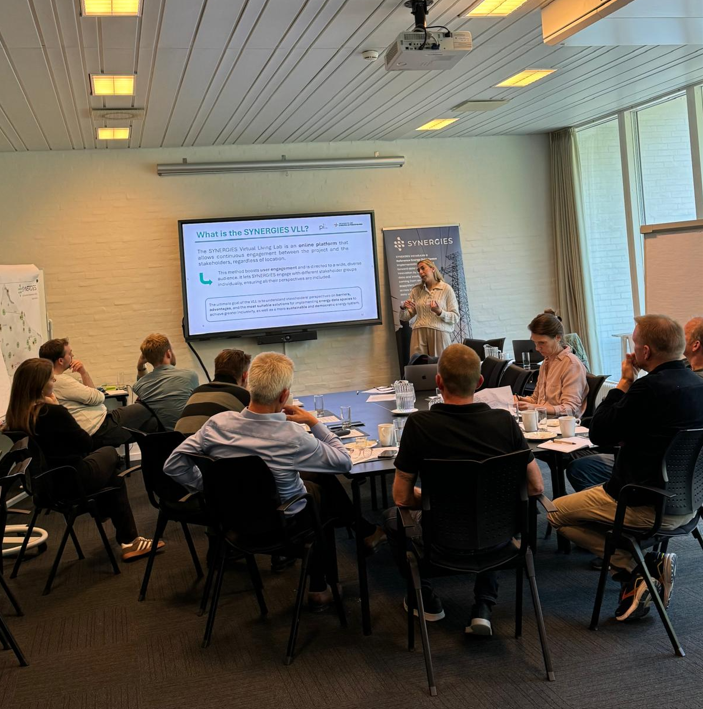The SYNERGIES project is driving innovation in the energy data value chain. A key component of this initiative is stakeholder engagement, which is implemented through a series of collaborative workshops known as Living Labs. These workshops provide a platform for prosumers and key stakeholders to test and validate developments within SYNERGIES, fostering a co-creation approach to shaping the future of energy data.
The third Living Lab was held in Bornholm, Denmark, on September 17th and 18th, 2024 and was organised by project partners from BEOF and PI. The Lab was organised to bring together a diverse group of participants, including representatives from Public Authorities, Prosumers, Farmers, and SMEs, for a total of 4 workshops prepared and implemented.
The workshops aimed to capture a broad range of perspectives on the development of common energy data spaces in the European Union as perceived in Bornholm and had the following objectives:
- Exploring energy data sharing: Understanding the potential for sharing energy data on Bornholm.
- Identifying challenges: Recognizing specific obstacles to energy data sharing and the implementation of energy data spaces.
- Proposing solutions: Developing potential solutions to overcome challenges and barriers.
- Fostering collaboration: Creating opportunities for collaborative energy data sharing and the adoption of SYNERGIES solutions in Bornholm.
The central guiding question that framed all the discussions was:
“How can we individually and collectively harvest and share energy data to build an even more sustainable and resilient energy future for Bornholm, fostering collaboration among prosumers and other stakeholders and the business sector?”
City Authorities workshop
The first workshop held on Bornholm brought together city authorities to delve into the island’s energy landscape and identify opportunities for improvement. Through collaborative discussions and mapping exercises, participants gained a shared understanding of the island’s existing renewable energy installations, areas of high energy consumption, and potential sites for future projects.
Key areas of focus emerged from the discussions:
- Expanding Renewable Energy: Participants emphasized the need to expand wind and solar power generation, particularly through offshore wind projects and the development of solar energy installations.
- Optimizing Energy Storage and Distribution: Improving energy storage capabilities and optimizing energy distribution systems were identified as crucial for ensuring a reliable and efficient energy supply.
- Leveraging Energy Data Spaces: The potential of energy data spaces to enhance energy efficiency, integrate diverse energy sources, and enable demand-side response was highlighted.
- Overcoming Barriers: Participants acknowledged the need to address regulatory hurdles, build trust among stakeholders, and ensure the long-term sustainability of energy initiatives.
At the end of the workshop the SYNERGIES Virtual Living Lab was presented and introduced as a collaborative platform to facilitate knowledge sharing and engagement without any time and space constraints.

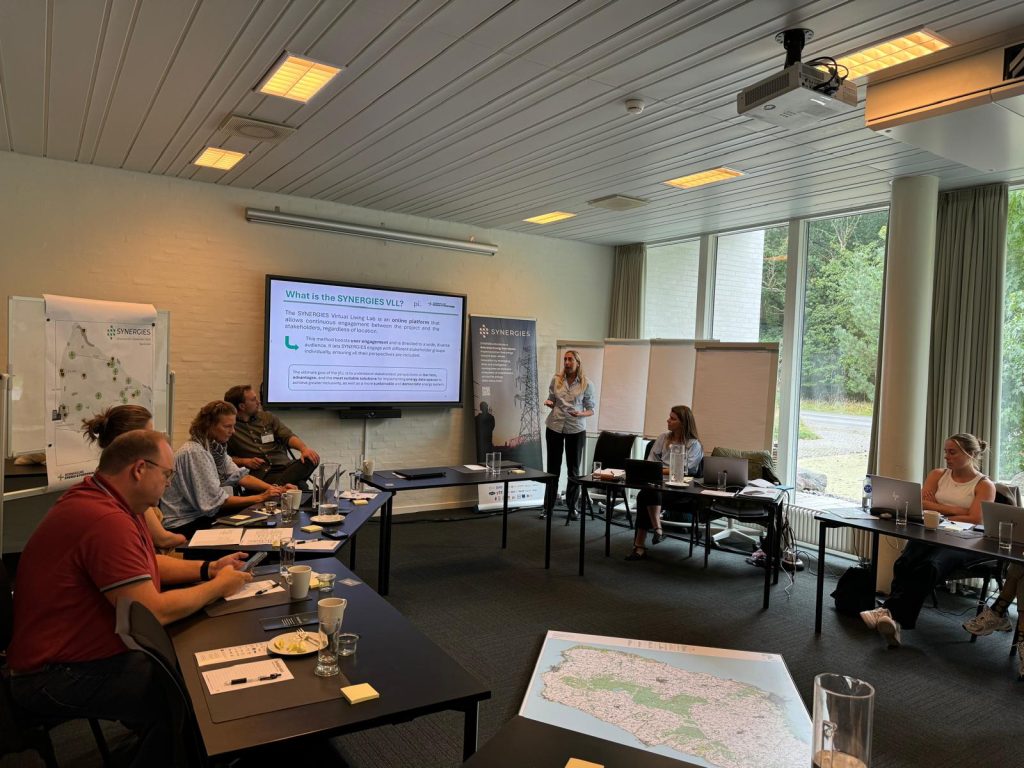
Prosumers workshop
The SYNERGIES Living Lab workshop for prosumers brought together 17 participants to delve into the intricacies of the energy value chain and the role of prosumers in shaping its future. Through interactive discussions and group activities, participants explored how energy flows from production to consumption, the importance of data sharing, and the potential benefits and challenges associated with it.
A key takeaway from the workshop was the positive attitude of prosumers towards sharing their energy data for research and public interest purposes. Participants expressed a willingness to contribute to initiatives that could drive innovation, sustainability, and environmental benefits. However, a more cautious approach emerged when considering commercial use of their data. Prosumers expressed concerns over privacy, potential misuse of their data, and the lack of transparency in how their data might be used by private companies.
The workshop highlighted the need for a nuanced approach to data sharing, balancing the benefits of data-driven innovation with the protection of individual privacy and data security. Specifically, it emphasized the importance of establishing clear guidelines and regulations to govern data sharing practices, ensuring that prosumers have control over their data and that it is used responsibly.
By fostering open dialogue and collaborative discussions, the workshop provided valuable insights into the perspectives and concerns of prosumers.
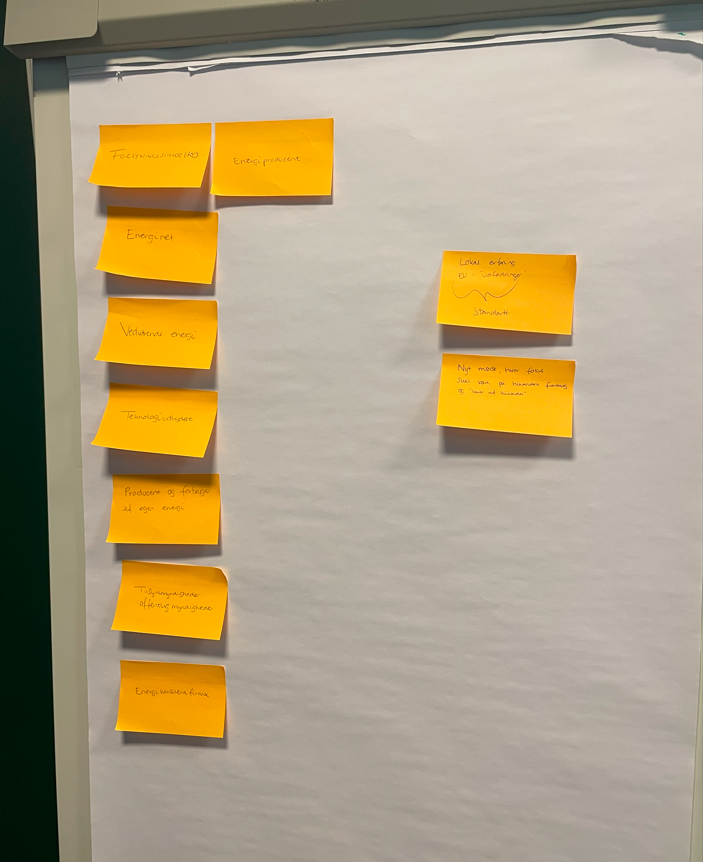
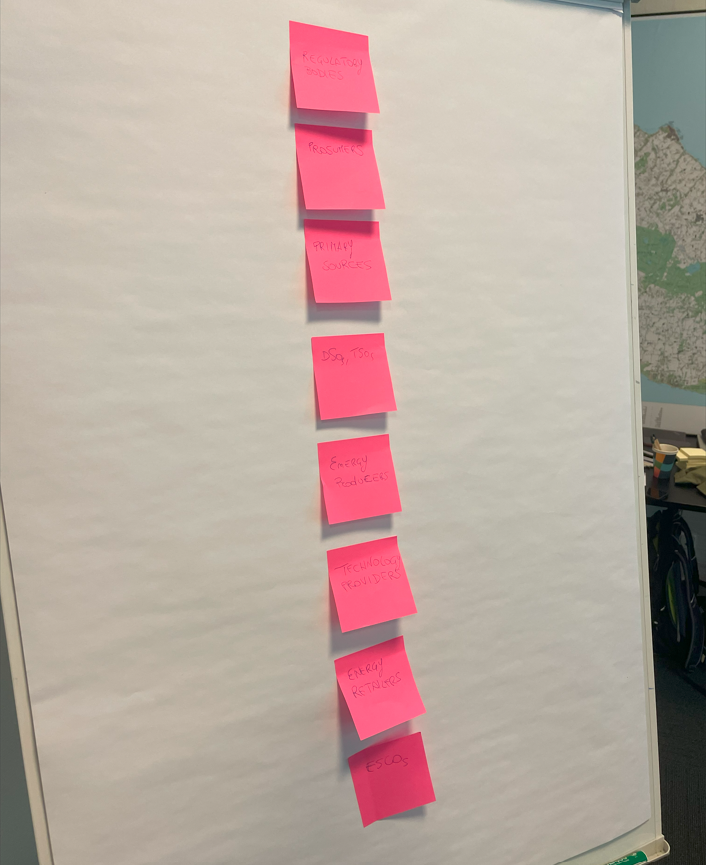
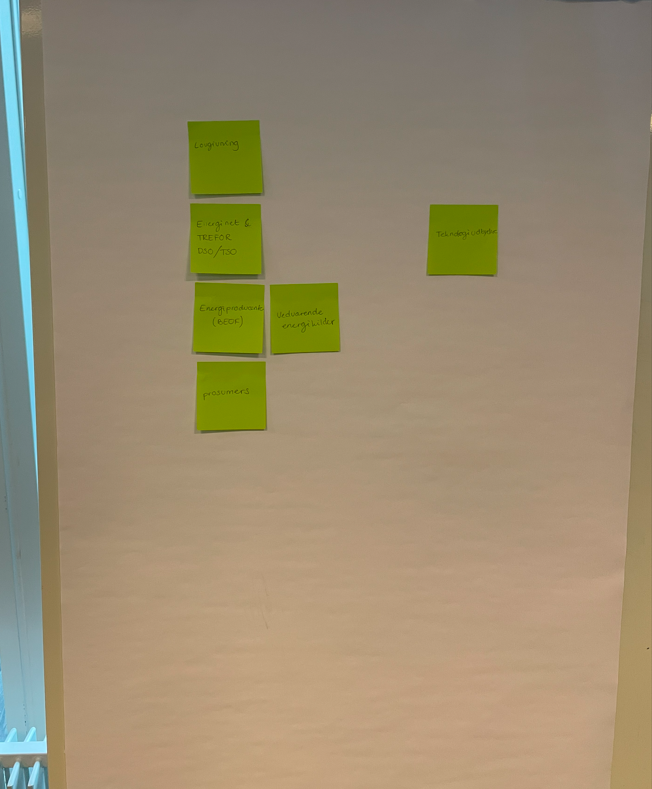

Farmers workshop
The second day of the workshops in Bornholm started with a session specifically tailored to farmers to explore how energy data spaces and renewable energy solutions could address the challenges of sustainable energy usage in agriculture.
During the workshop, farmers shared insights on their energy consumption, revealing peak energy demands tied to livestock ventilation systems, which drive high and continuous power needs. Solar panels emerged as a practical solution for direct energy use, though battery storage was less viable considering the large dimensions of farms on the island. Participants regarded as a recurring concern the ability to use all the energy they generate onsite, rather than returning surplus energy to the grid.
The discussions also highlighted regulatory barriers, particularly Denmark’s availability tariff, which disincentivizes solar installations for over 50-kWh. Such limit hampers farmers’ ability to fully leverage solar energy on larger farms.
Like in the previous workshop, a key takeaway from the workshop was the participants’ openness to share energy data in support of the green transition and their interest in solutions that would circulate self-produced energy across various farm operations. Finally, the workshop underscored one more time the shared ambition for energy self-sufficiency and a commitment to address regulatory barriers in Bornholm.
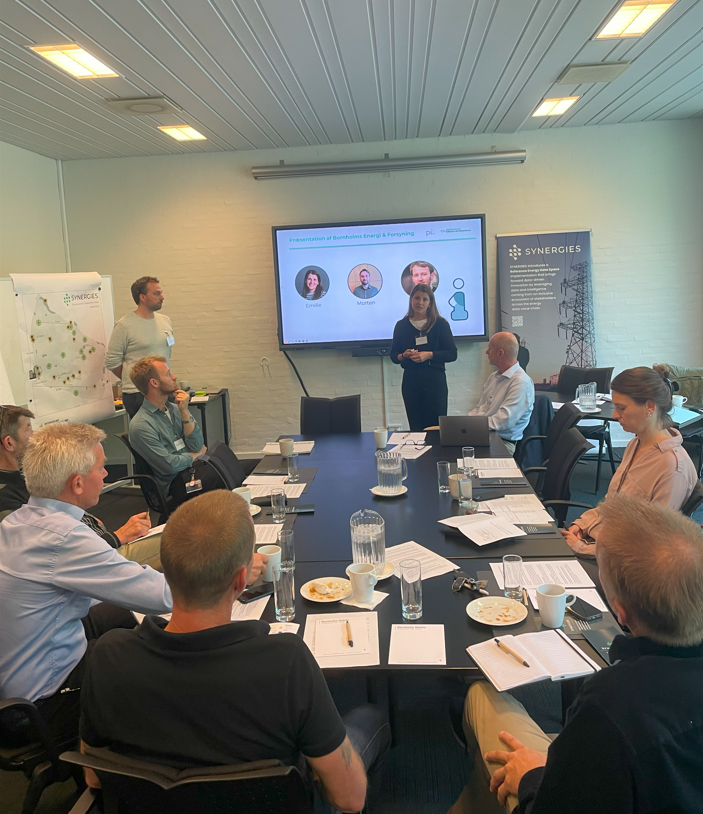
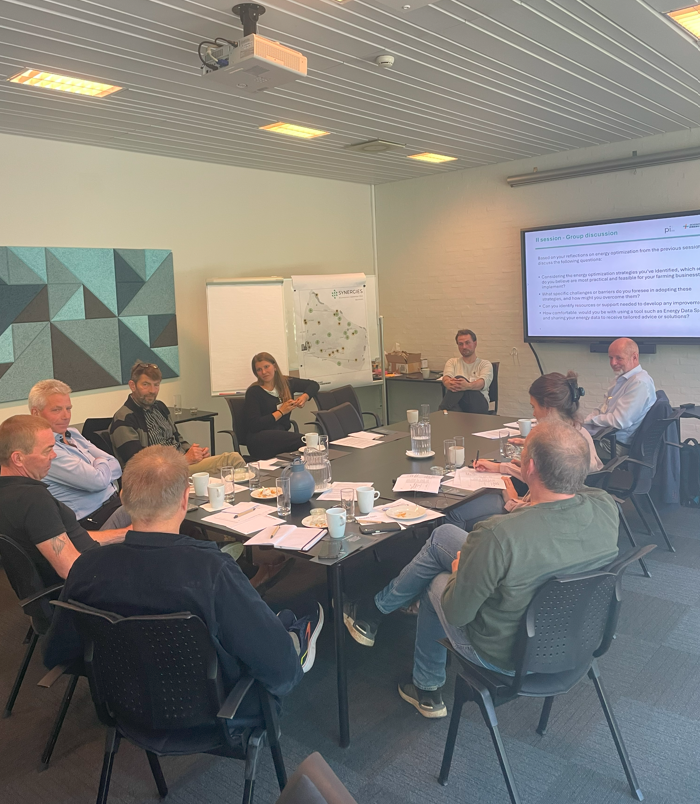
SMEs workshop
The SMEs workshop followed the farmers’ workshop with representatives from different local companies in Bornholm.
The workshop began with presentations on energy data spaces and stakeholder engagement in energy sharing, followed by an introduction to the Virtual Living Lab, encouraging participants to think about how emerging technologies could optimize energy use in their operations. While only one participant mentioned his business had already installed a PV system, all participants saw PV as a valuable investment for its cost-saving potential and ability to enhance sustainability credentials. Given that most energy use occurred during daylight hours, participants agreed solar was ideal over storage options like batteries.
Participants delved into strategies to reduce energy costs and identified peak energy times. Unlike the farmers, they noted minimal variations in peak energy demands but cited higher energy costs between 5:00 PM and 9:00 PM as a consistent challenge. Renewable energy self-sufficiency and green labelling emerged as priorities, while participants also highlighted that sustainable practices and certifications would bolster their market reputation and align with customers’ growing interest in eco-friendly business operations.
A notable insight was shared by one business representative, who emphasized the importance of carbon footprint certification. Finally, once more participants expressed no hesitation in sharing their energy data within an energy data space, viewing it as an opportunity to collaborate on shared sustainability goals. The workshop concluded with expressing mutual enthusiasm for integrating renewable energy solutions and leveraging green credentials for both operational and reputational benefits.
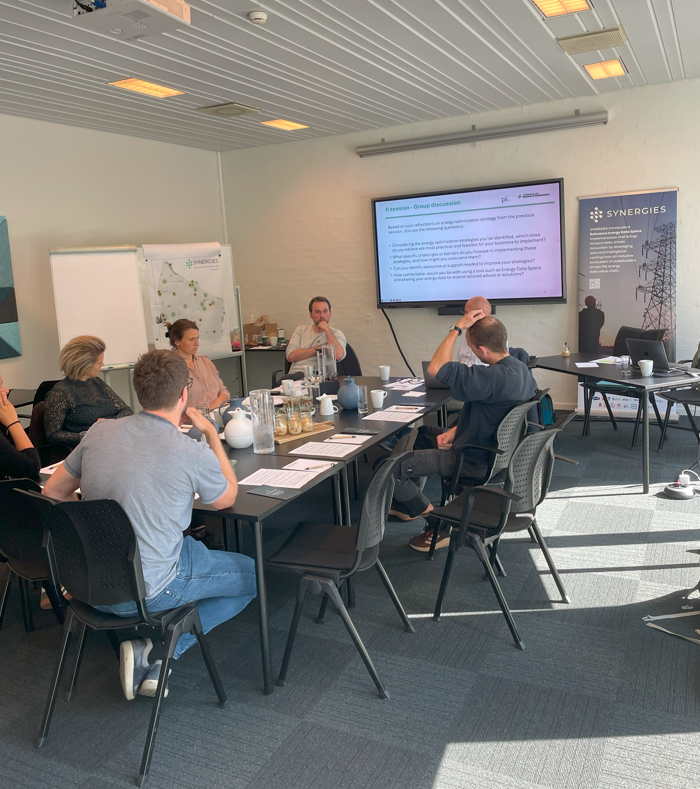
Conclusions
The SYNERGIES Bornholm Living Labs marked a significant milestone for advancing energy data spaces and promoting energy data sharing practices.
Bornholm’s advanced renewable energy infrastructure was a prominent theme. With widespread renewable energy use, particularly wind and solar power, the island’s stakeholders, from public authorities to SMEs, demonstrated a high level of awareness and integration of renewable technologies in daily operations. The island’s decentralised energy production, where prosumers actively contribute to the grid, exemplifies the potential for energy data sharing to enhance sustainability.
A unique outcome was the high level of trust in energy data sharing. Participants across sectors, accustomed to Denmark’s collaborative and transparent approach to energy, viewed data sharing positively. This openness, while essential for the success of energy data spaces’ implementation, was met with the constraint that current legislation limits public authorities from fully sharing their data. Nonetheless, participants recognised data sharing’s role in improving energy efficiency and supporting sustainability, reflecting a broader cultural alignment towards collective benefits.
Overall, Bornholm’s advanced infrastructure, trust in data sharing, and readiness to embrace the innovative topic of energy data spaces placed it as a leading example for sustainable energy practices. The Living Labs underscored the importance of collaboration, with stakeholders unified in the shared mission of building resilient and sustainable energy systems. The workshops’ positive attitude to digital tools like the Virtual Living Lab emphasized Bornholm’s potential to pioneer data-driven solutions, setting an inspiring model for regions aiming to embrace sustainable, collaborative energy practices.

